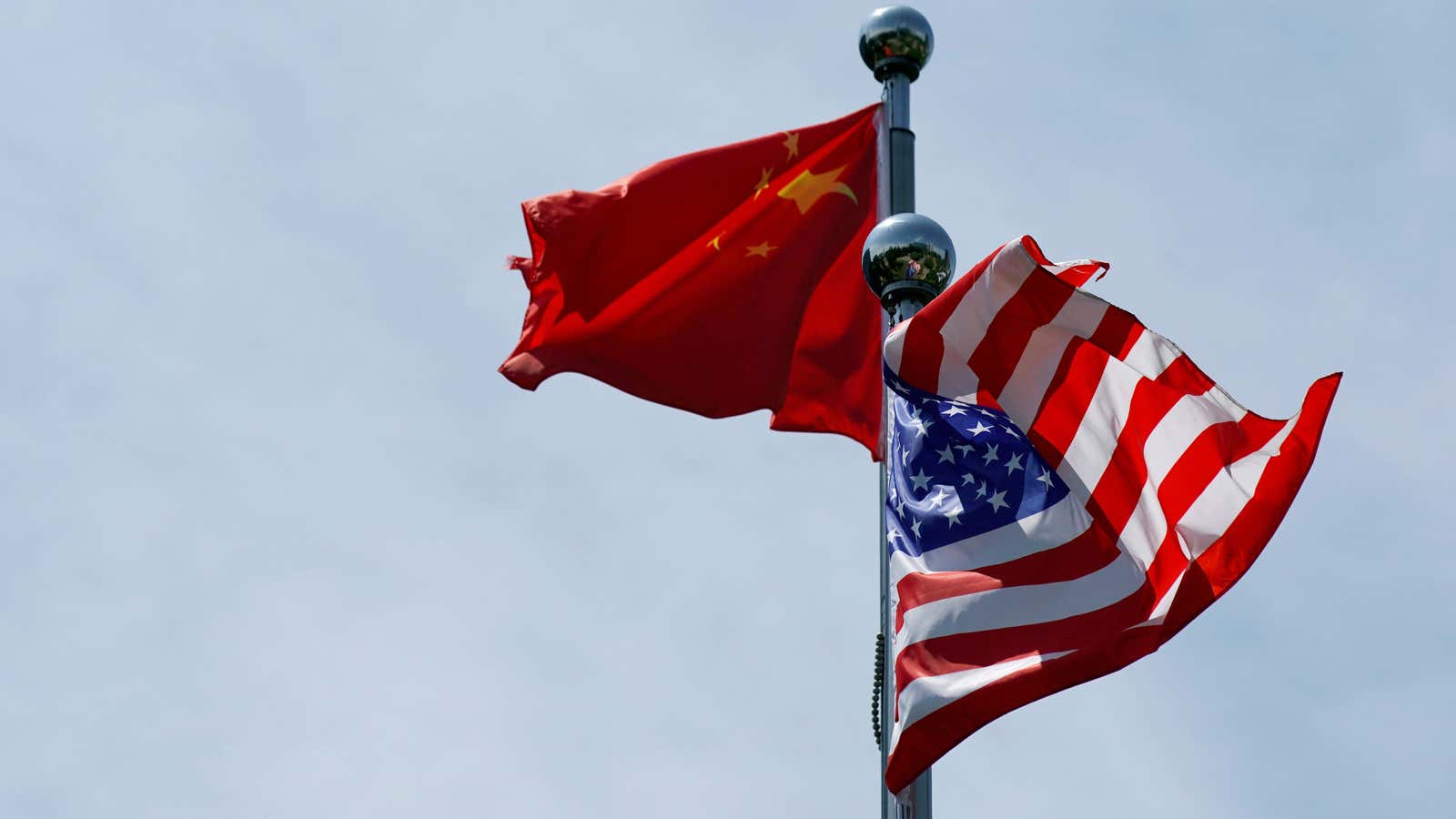A US State Department official has said that tech companies Alibaba and Tencent should be seen as tools of the Chinese government, along with China’s embattled telecom giant Huawei. It raises the possibility that the US will widen its range of Chinese targets for enhanced scrutiny due to security concerns.
“Whether de facto or de jure, such giants can in some important respects or for some purposes act as arms of the state—or, more precisely, the Chinese Communist Party, to which the Chinese state apparatus is itself subordinate,” said Christopher Ashley Ford, assistant secretary of the US State Department’s bureau of international security and nonproliferation. He was speaking at a conference in Washington. The State Department published a transcript on Wednesday (Sept. 11).
“Firms such as Huawei, Tencent, ZTE, Alibaba, and Baidu have no meaningful ability to tell the Chinese Communist Party ‘no’ if officials decide to ask for their assistance…Such aid may not necessarily occur routinely, but it certainly can occur—and presumably will—whenever the Party considers this useful and cares to demand it,” he said.
Ford also accused the Chinese companies of helping Beijing to develop, build, and maintain the techniques used for “a foundation of technology-facilitated surveillance and social control”, upon which he said the “China Dream” or “China Model” is built. Both terms refer to China’s efforts “to shape the world consistent with its authoritarian model,” he said. “As these companies export their products and services to the rest of the world, the security and human rights problems associated with this ‘China Model’ are progressively exported with them.”
Huawei has previously said it would not hand over data even if Beijing asked for it. After Ford’s remarks were published, a spokesman said in an email: “Huawei employs around 150,000 people in China, pays the relevant tax and follows the laws of China. That is the extent of our relationship with the government, which is similar to the relationship we have with governments in the 170 markets worldwide where we operate.” The spokesperson added: “Neither the Government nor the Party have any management decision-making role in Huawei and the company has zero external ownership.”
Ford’s remarks, first reported by The Information, come as the US steps up scrutiny of Chinese companies. In May, the Trump administration put Huawei on a trade blacklist citing security concerns over its alleged ties to the Chinese government. This has effectively barred Huawei from doing business with some of its American suppliers, whose products—phone chips and operation systems including Google’s Android—are essential to the telecom giant’s survival. Five Chinese video surveillance companies, including industry giant Hikvision and startup Megvii, are also being considered for the trade blacklist by the US, because of concerns that they help Beijing track and repress the minority Uighurs in Xinjiang.
While it’s unlikely that the Trump administration would make an immediate decision on enhanced scrutiny of Alibaba and Tencent, Ford’s remarks point to a worrying development. This US official grouped China’s first generation tech champions or BAT —Baidu, Alibaba, Tencent— with Huawei. This suggests that the US security community may view the BAT, which are US and Hong Kong-listed, in the same way they look at un-listed Huawei. This would potentially make it difficult for these firms to do business or invest in American companies, say observers.
Alibaba said it had no comment for the story, while Tencent, Baidu, and ZTE did not reply to requests for comment.
